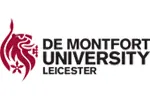Psychology is the scientific study of the mind and how it shapes and influences our behaviour. On this course, we explore human behaviour using sound scientific methodology – observation, measurement, and testing – to understand how and why people function in the way they do.
You’ll study core areas including biological, cognitive, developmental and social psychology, and you’ll cover personality and intelligence, research methods, and historical perspectives. You’ll have the option to complete a work experience placement where you’ll see academic theory applied in practice. We offer excellent facilities including dedicated computer laboratories with the latest analysis software, individual research cubicles, interview rooms, and an observation suite, all supported by our psychology technicians.
Studying a Psychology degree will equip you with a range of skills that are transferable and desired by employers including critical thinking, analysing data, communicating ideas (written, oral and visual), numerical reasoning skills, computer literacy, effective team work, project management, and being self-directed in meeting deadlines. These are the kinds of skills that make Psychology graduates attractive for employers, and competitive in the job market.
Gaining a professionally accredited psychology degree is an essential first step to a career as a psychologist or to move on to postgraduate study. An accredited Psychology degree allows you to access further training for specialist Psychology careers such as Clinical Psychology, Health Psychology, Educational Psychology and Forensic Psychology
Psychology graduates are valued across a range of fields and thrive in careers where an understanding of societal issues is key – in healthcare, criminal justice, education, social work, market research, social research, UX research, policy making, advertising and human resources. Graduates are also able to access graduate training schemes across various industries such as financial services, civil services etc.
Key features
- Benefit from Education 2030, where a simplified ‘block learning’ timetable means you will study one subject at a time and have more time to engage with your learning, receive faster feedback and enjoy a better study-life balance.
- Your programme will be delivered in teaching blocks, which means you predominantly focus on one 30 credit module at a time in your first and second year (apart from two 15 credit modules delivered in year 2).
- This course is accredited by the British Psychological Society (BPS), meaning you will be eligible for Graduate Basis for Chartered Membership with the BPS – the starting point of your career as a chartered psychologist – on successful completion of your degree (subject to achieving a minimum of 2:2).
- The expertise of our staff spans across four main research clusters: Health Psychology, Cognition and Neuroscience, Psychology and Technology, and Self and Identity.
- Employability is embedded in our course to reflect on and develop your skills, and you will be supported with learning how to prepare a job application.
- In your final year, we have a dedicated Employability Skills and Psychology module where you will undertake a period of work experience and consider how psychological theory can be applied in a work environment
- Graduate careers include healthcare, research, social work, marketing, police services, teaching and human resources.
- Enrich your studies with an international experience through our DMU Global programme. Psychology students have recently explored the history of mental health and neuropsychology in Paris and cross-cultural factors within psychology in Kuala Lumpur.



